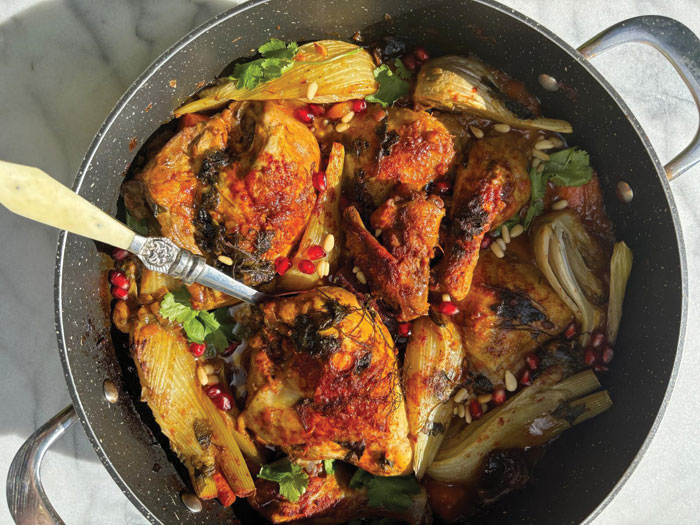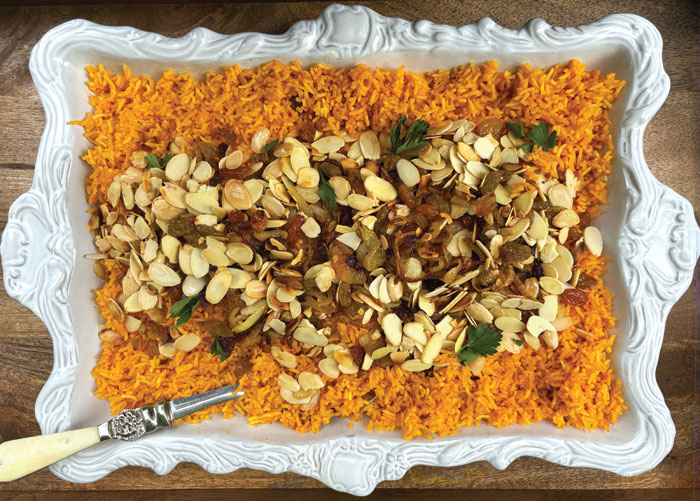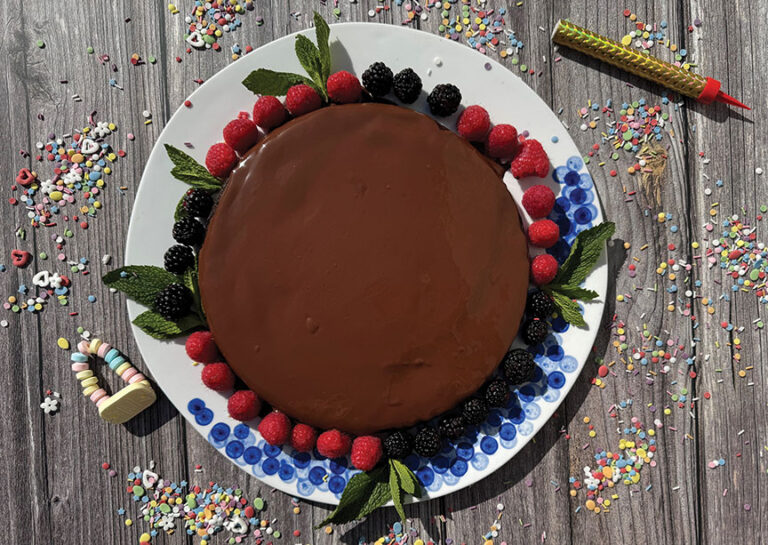Albondigas: A Classic of Andalusian Cuisine
This Albondigas recipe is truly easy to throw together. Adding potato starch to the ground beef makes them really moist, light and flavorful.

Oh, how I loved Ramadan when I was a little girl! In Casablanca I attended a Catholic girls school. I had a beautiful blonde teacher and the nuns who ran the school were actually warm and kind. The school was just down the street from our home, so every day at lunchtime, I would come home and my family would eat a hot meal prepared by my mother. We would bask in the sun on our balcony and then my mother would walk me back to school. Those were glorious days, when my mother would hold my little hand as I skipped alongside her.
During Ramadan however, the girls brought their lunch to school and we would all eat together. This was the early ’70s, so we would have those retro pale green glass bottles of ice cold Coca Cola. The nuns would walk around opening bottles for the little girls. After lunch, my classmates and I were sent to play in the schoolyard. The change in routine was so exciting!
But for my mother this caused suffering and worry. My mother was serious about food and her mission in life was to feed us and feed as well. How could she do that when she couldn’t give me a hot lunch?
In Casablanca, the Jewish community was predominantly French Moroccan, but there were also Spanish Moroccans that came from cities that had once been Spanish colonies like Tangier and Tetouan and Larache, where my family had lived for five centuries since the Expulsion from Spain. Besides the obvious difference of speaking Spanish, the Spanish Moroccans also had a different cuisine. One of the delicacies was Albondigas, the Spanish version of meatballs. The name comes from the Arabic word al-bunduq, which derives from the Greek word for hazelnut, suggesting that the meatballs are of the same shape and size as hazelnuts. They can be traced back to the Islamic influence of the Arab invasion of the Iberian Peninsula in 711. Despite the expulsion of the Moors and the Jews in 1492, this Arab-influenced dish remains a star of Andalusian cuisine until today.
My mother was expert in the art of making Albondigas. She stewed these delicious meatballs with peas or with potatoes or with a spicy tomato sauce. Sometimes she made them round and other times she made flat little patties. Other times she would form a broiled liver and meat mixture into small little torpedo shapes and stewed them in a spicy cumin and preserved lemon tomato sauce. And other times she stuffed the torpedo shaped meatballs with pieces of hard boiled egg and simmered them with onions and peas.
My mother knew that albondigas con patatitas (little pieces of potato) were my favorite. The meatballs and potatoes were simmered in a rich saffron sauce and they were just so flavorful.
So what did my mother do to relieve her worry that I wasn’t having my usual hot lunch during Ramadan?
She would make me the most delicious Albondiga sandwich on crisp fresh baguette. She would slather the bread with Savora mustard. (And if you haven’t heard of Savora mustard, it’s a unique condiment made of mustard seeds, cinnamon, Cayenne pepper, nutmeg, curcuma, cloves, celery, garlic, tarragon, vinegar and a touch of honey. The recipe dates back to 1899 and the French love it. Savora is a great accompaniment to meat, fish and vegetables.) Then she would nestle the meatballs in the sandwich and wrap it tightly in paper. I can still feel the love she put into my lunch.
—Rachel
Besides the obvious difference of speaking Spanish, the Spanish Moroccans also had a different cuisine. One of the delicacies was Albondigas, the Spanish version of meatballs.
Rachel and I are huge fans of one skillet meals. This Albondigas recipe is truly easy to throw together. Adding potato starch to the ground beef makes them really moist, light and flavorful. And it only requires a little patience to allow the meatballs to simmer in the fabulous saffron-infused broth. Have fun with this recipe and add your own twist with vegetables you love. I would serve it with fluffy grains of basmati rice or perhaps a baguette, like Rachel’s mom did.
—Sharon
Saffron Meatballs
1 pound ground beef
1 small yellow onion, grated and drained of liquid
2 garlic cloves, grated
4 tablespoons potato starch
1 egg
1 teaspoon cumin
1 teaspoon coriander
2 teaspoon salt
1/2 teaspoon pepper
Place all the ingredients in a large bowl, then mix to combine well.
Line a baking sheet with parchment paper.
Form mixture into small meatballs, then set aside.
Stew
1 pinch of saffron threads
1 cup hot water
1 chicken consommé cube
1 large onion, finely chopped
1/4 cup extra virgin olive oil
5 small golden potatoes, peeled and diced
Salt & pepper
1 cup cilantro, for garnish
1 teaspoon cumin, optional
- Soak saffron in water, let sit for 10 minutes, add consommé to saffron water and stir until dissolved. Set aside.
- In a large skillet, warm olive oil over medium heat. Add onions and sauté for 10 minutes until caramelized.
- Add the garlic to the skillet and sauté for 2 minutes.
- Add the meatballs and sauté for 5 minutes.
- Turn the meatballs to brown evenly, then add the potatoes.
- Pour saffron water over the potatoes and meatballs, then add the salt and pepper. If more broth is desired, add more water.
- Give the pot a good shake so the meatballs and potatoes don’t stick to the bottom, (using a spoon will break the potatoes), cover and simmer until the potatoes are fork tender.
- Sprinkle chopped cilantro and cumin on top.
Sharon Gomperts and Rachel Emquies Sheff have been friends since high school. The Sephardic Spice Girls project has grown from their collaboration on events for the Sephardic Educational Center in Jerusalem. Follow them on Instagram @sephardicspicegirls and on Facebook at Sephardic Spice SEC Food. Website sephardicspicegirls.com/full-recipes








One Comment